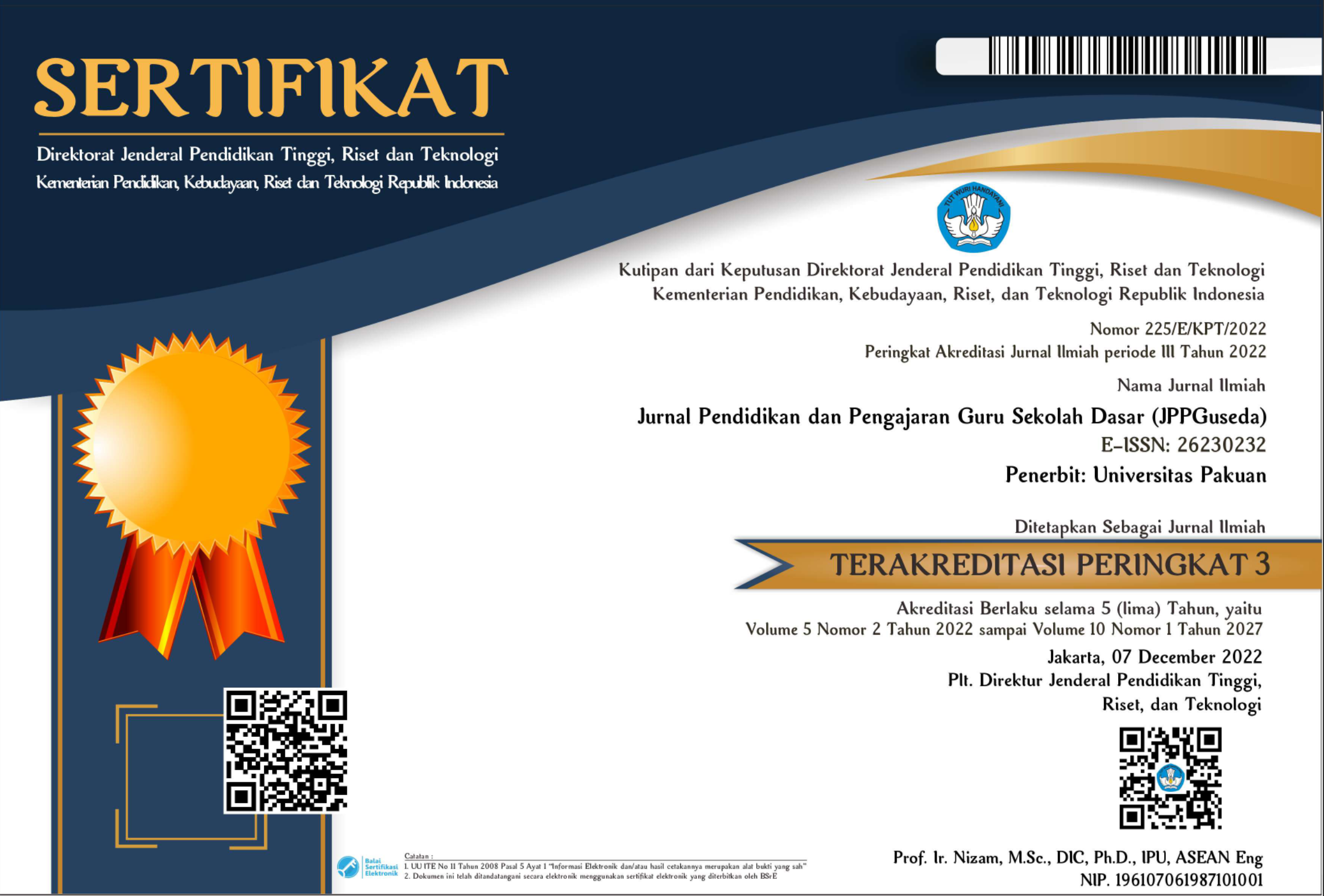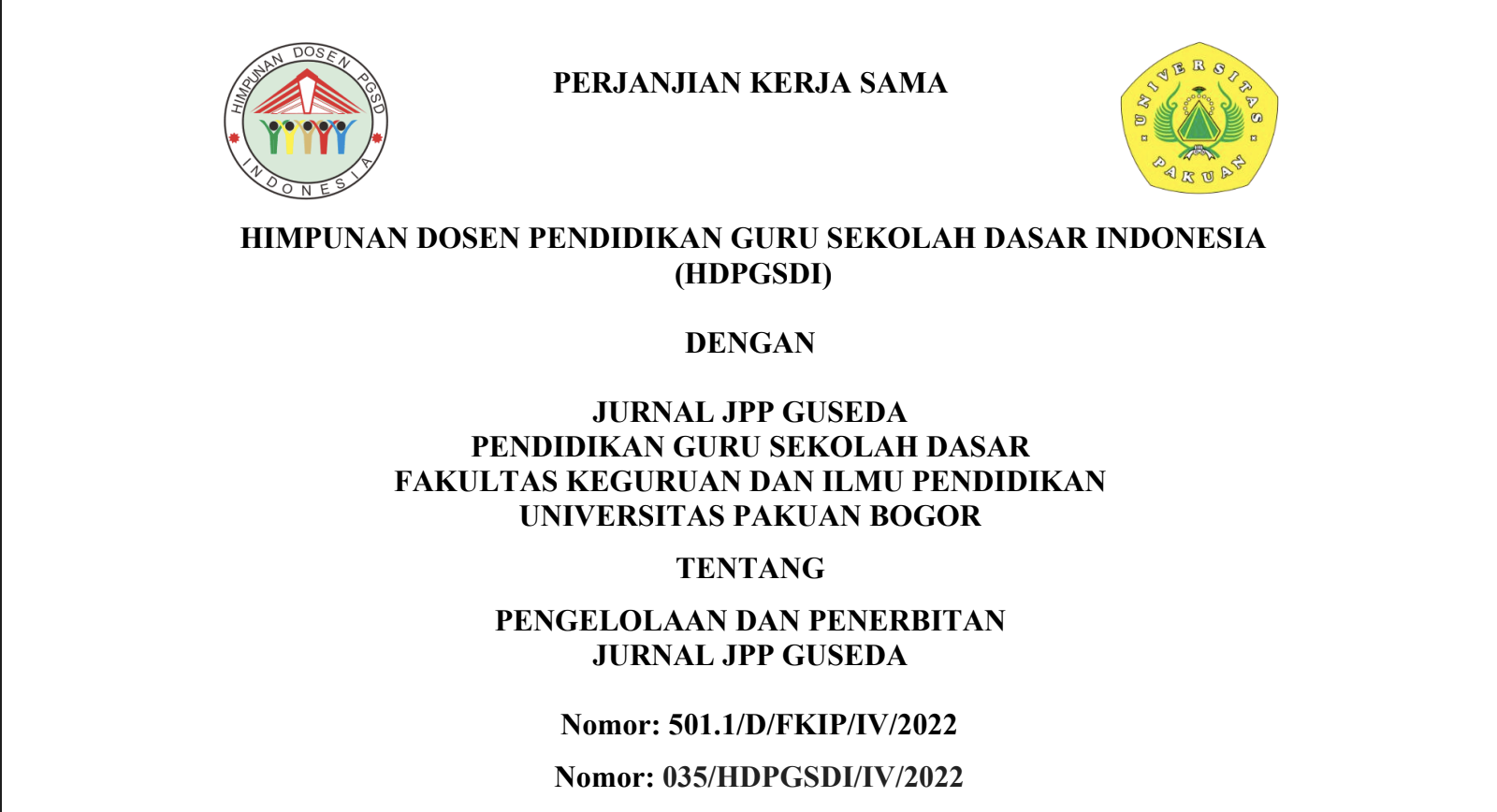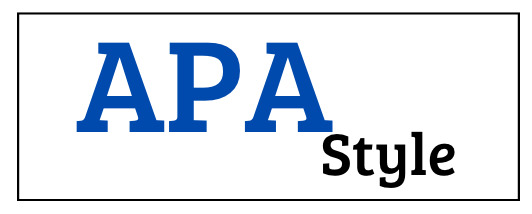THE EFFECT OF DIGITAL LITERATURE ON STUDENTS' LEARNING INDEPENDENCE IN THE 2019 COVID SITUATION
Abstract
This study is a quantitative study through a causal approach with the purpose of determining the effect of digital literacy on the results of students' learning autonomy in the 2019 COVID situation. This study was conducted to test the validity of the instrument using the formula Person Product Moment correlation and reliability test using Cronbach's Alpha formula. The sample in this study was 42 students of the Elementary School, which was obtained using the Taro Yamane formula. This quantitative research was continued with the requirements test of data analysis using the Normality, Homogeneity, and Linearity tests. The average value for the digital literacy variable is 84.73 and the average value for the learning independence variable is 78.29. The results showed that there was an effect of digital literacy on learning independence, which was indicated by the path coefficient (pxy) of 0.70. This shows the influence of digital literacy on learning independence, while the coefficient of determination (r2) is 0.49 or 49%. This means that the value of the influence of digital literacy on learning independence is 49%, through the regression equation Y =(10.49 + 0.8X). Based on the results of the research above, it can be concluded that there is a positive influence of digital literacy on the learning independence of students in the 2019 COVID situation.
Keywords
References
Druin, A. (2014). Inclusive ownership of participatory learning. Instr Sci 42, 123126. https://doi.org/10.1007/s11251-013-9307-0.
OConnell, J. (2016). Networked participatory online learning design and challenges for academic integrity in higher education. Int J Educ Integr 12, 4 (2016). https://doi.org/10.1007/s40979-016-0009-7.
Engelbertink, M.M.J., Kelders, S.M., Woudt-Mittendorff, K.M. et al. (2020). Participatory design of persuasive technology in a blended learning course: A qualitative study. Educ Inf Technol 25, 41154138. https://doi.org/10.1007/s10639-020-10147-x.
Zanghi, B.M., Araujo, J. & Milgram, N.W. (2015). Cognitive domains in the dog: independence of working memory from object learning, selective attention, and motor learning. Anim Cogn 18, 789800. https://doi.org/10.1007/s10071-015-0847-3.
Shephard, K. (2022). On Intellectual Independence: The Principal Aim of Universities in New Zealand. NZ J Educ Stud 57, 269284. https://doi.org/10.1007/s40841-022-00250-7.
Lowell, V.L., Campion, L.L. (2020). Introduction to TechTrends Special Issue: Authentic Learning Experiences via Distance Learning. TechTrends 64, 548549. https://doi.org/10.1007/s11528-020-00523-2.
Foo, Cc., Cheung, B. & Chu, Km. (2021). A comparative study regarding distance learning and the conventional face-to-face approach conducted a problem-based learning tutorial during the COVID-19 pandemic. BMC Med Educ 21, 141 (2021). https://doi.org/10.1186/s12909-021-02575-1.
Reichert, F., Zhang, J., Law, N.W.Y. et al. (2022). Correction to: Exploring the structure of digital literacy competence assessed using authentic software applications. Education Tech Research Dev 70, 659660 (2022). https://doi.org/10.1007/s11423-022-10108-w.
Tinmaz, H., Lee, YT., Fanea-Ivanovici, M. et al. (2022). A systematic review on digital literacy. Smart Learn. Environ. 9, 21. https://doi.org/10.1186/s40561-022-00204-y
Yamin, Martinis. (2013). Strategi dan Metode dalam Model Pembelajaran. Jakarta Referensi (GP Press Group).
Ningsih, Rita. (2016). Pengaruh Kemandirian Belajar Dan Perhatian Orang Tua Terhadap Prestasi Belajar Matematika. Jurnal Formatif Vol. 6. No.1 E-ISSN 2502-5457.
Fatihah, Miftaqul Al. (2016). Hubungan Antara Kemandirian Belajar dengan Prestasi Belajar PAI Siswa Kelas III SDN Panularan Surakarta. At-Tarbawi: Jurnal Kajian Kependidikan Islam Vol.1 No. 2.
Ola, Safniyati Ina. (2019). Pengaruh Kemandirian dan Gaya Belajar Terhadap Prestasi Belajar Matematika Siswa. Jurnal Alauddin Vol. 1 No. 1 E-ISSN 2721-1738
Uno, Hamzah B. (2012). Profesi Kependidikan. Jakarta: Bumi Aksara
UNESCO. (2018). A Global Framework Of Reference On Digital Literacy Skills For Indicator 4.4.2. Information Paper No. 51.
Setyaningsih, Rila. (2019). Model Penguatan Literasi Digital Melalui Pemanfaatan E-Learning. Jurnal ASPIKOM, Vol. 3 No. 6.
Salehudin, Mohammad. (2020). Literasi Digital Media Social Youtube Anak Usia Dini. Jurnal Ilmiah Potensia. Vol 5 Nomor 2.
Liansari, Vevy. (2018). Realitas Penerapan Literasi Digital Bagi Mahasiswa FKIP Universitas Muhammadiyah Siduarjo. Proceedings Of The ICECRS. Vol 1 Nomor 3.
Hobbs, Renee. (2010). Digital and Media Literacy: A Plan of Action. Washington, D.C.: The Aspen Institute.
Neumann, M.M., Finger, G. & Neumann, D.L. (2017). A Conceptual Framework for Emergent Digital Literacy. Early Childhood Educ J 45, 471479. https://doi.org/10.1007/s10643-016-0792-z.
Eutsler, L. (2021). Making Space for Visual Literacy in Literacy Teacher Preparation: Preservice Teachers Coding to Design Digital Books. TechTrends 65, 833846. https://doi.org/10.1007/s11528-021-00629-1.
Audrin, C., Audrin, B. (2022). Key factors in digital literacy in learning and education: a systematic literature review using text mining. Educ Inf Technol. https://doi.org/10.1007/s10639-021-10832-5.
Sugiyono. (2017). Metode Penelitian Kuantitatif, Kualitatif, dan R&D. Bandung :Alfabeta, CV
Nikou, S., Aavakare, M. (2021). An assessment of the interplay between literacy and digital Technology in Higher Education. Educ Inf Technol 26, 38933915. https://doi.org/10.1007/s10639-021-10451-0.
Alanoglu, M., Aslan, S. & Karabatak, S. (2022). Do teachers educational philosophies affect their digital literacy? The mediating effect of resistance to change. Educ Inf Technol 27, 34473466. https://doi.org/10.1007/s10639-021-10753-3.
Muna, Fatma Nailul. (2020). Pengaruh Penerapan Literasi Digital dan Kemandirian Belajar Terhadap Prestasi Belajar IPA Pada Masa Covid-19 Siswa Kelas IX SMP NU Suruh Tahun Pelajaran 2020/2021. IAIN Salatiga. E-repository.perpus.iain salatiga.ac.ad. [http://e-repository.perpus.iainsalatiga.ac.id/9943/]
Falloon, G. (2020). From digital literacy to digital competence: the teacher digital competency (TDC) framework. Education Tech Research Dev 68, 24492472. https://doi.org/10.1007/s11423-020-09767-4.
Tomczyk, Å. (2020). Skills in the area of digital safety as a key component of digital literacy among teachers. Educ Inf Technol 25, 471486. https://doi.org/10.1007/s10639-019-09980-6.
DOI: 10.55215/jppguseda.v5i2.6000
 Abstract views : 775
Abstract views : 775
Refbacks
- There are currently no refbacks.
Copyright (c) 2022 Jurnal Pendidikan dan Pengajaran Guru Sekolah Dasar (JPPGuseda)

This work is licensed under a Creative Commons Attribution-NonCommercial 4.0 International License.




















